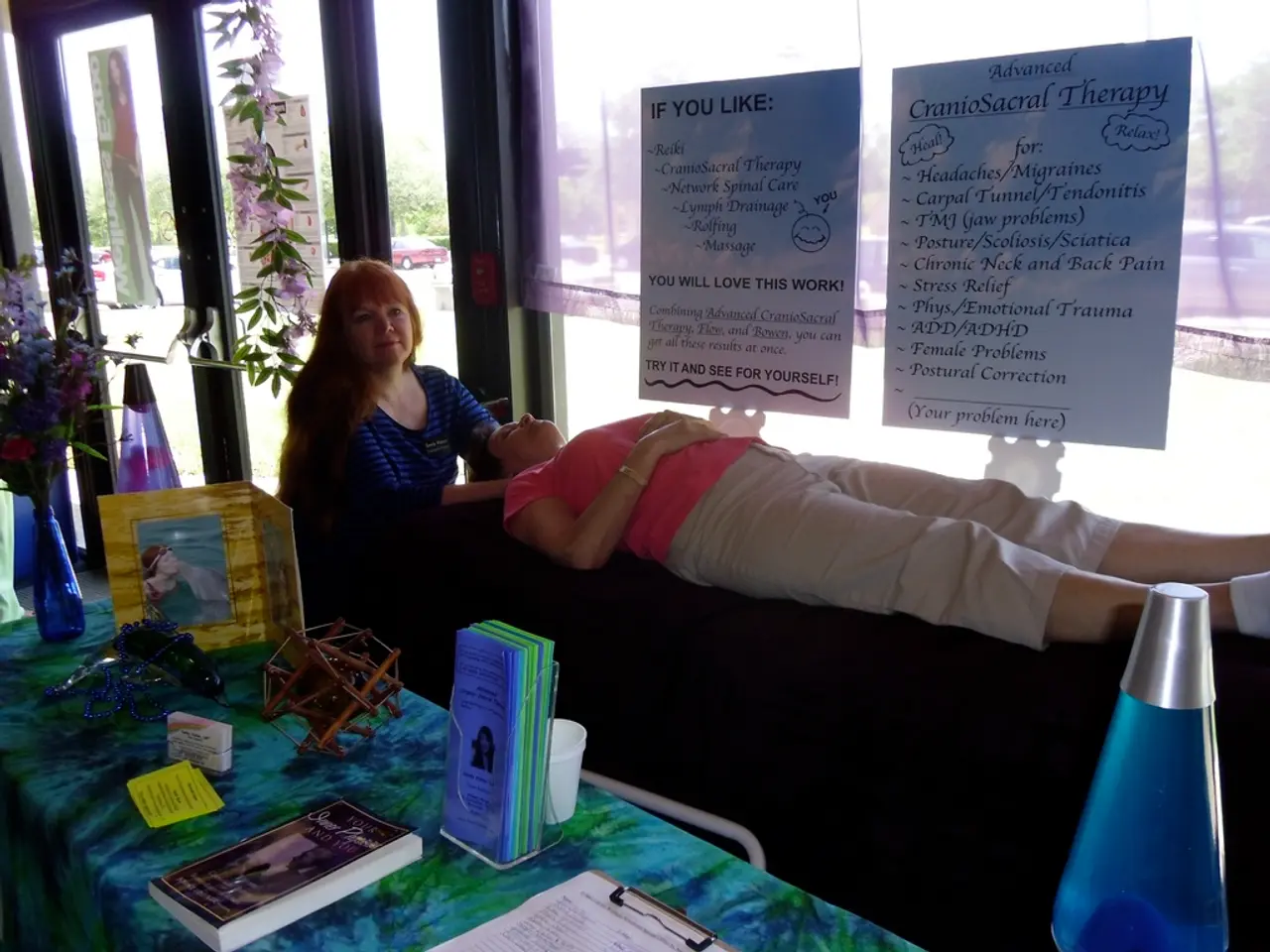Techniques for Alleviating Carpal Tunnel Syndrome Pain Through Relaxation Methods
Carpal Tunnel Syndrome (CTS) is a common condition that causes pressure on the median nerve, leading to symptoms such as pain or aching in the hand, wrist, and forearm, tingling or numbness in the fingers, weakening grip strength, and difficulty with fine motor skills. While temporary relief can be achieved through relaxation techniques, addressing the underlying causes is crucial for long-term management.
Incorporating relaxation methods into your daily routine can be a valuable tool for CTS pain relief. Here are some effective techniques:
## Massage Therapy
Massage is highly effective in reducing inflammation, pain, and numbness associated with CTS. By softening and lengthening the muscles and fascia, massage provides long-term relief. Target areas include the neck, shoulder, upper arm, elbow, forearm, wrist, and hand. Insurance might cover some costs.
## CarpalRx Device
The CarpalRx device provides myofascial release massage automatically, mimicking a therapist's technique. It's designed to reduce adhesions and inflammation while decompressing the median nerve. Use once or twice daily for 15 minutes per session, with a recommended treatment duration of 30 days or more for severe symptoms.
## Stretching Exercises
Hand and wrist stretches help improve flexibility and reduce stiffness in the affected areas, potentially alleviating CTS symptoms. Stretch fingers apart several times to relieve tension and pain. Pull your thumb back as far as you can, holding for a few seconds before releasing. Wrist stretches, such as the flexor and extensor stretches, are also effective.
## Ice Packs
Ice packs can be used to decrease inflammation and swelling in the affected area.
## Hand Therapy
Certified hand therapists can teach you how to manage pain through exercises, topical medications, deep breathing, and meditation.
In addition to these techniques, it's essential to take frequent breaks during repetitive tasks, maintain proper posture, especially when using a keyboard, and consider chiropractic treatment for additional relief. If symptoms persist or worsen, consult with a healthcare professional for comprehensive treatment options.
Guided imagery, deep breathing exercises, and progressive muscle relaxation may also provide relief, but these techniques are not specifically mentioned in the provided bullet points.
[1] Mayo Clinic. (2020). Carpal tunnel syndrome - Symptoms and causes. Retrieved from https://www.mayoclinic.org/diseases-conditions/carpal-tunnel-syndrome/symptoms-causes/syc-20353825 [2] CarpalRx. (n.d.). How it works. Retrieved from https://carpalrx.com/how-it-works/ [3] Mayo Clinic. (2020). Carpal tunnel syndrome - Diagnosis and treatment. Retrieved from https://www.mayoclinic.org/diseases-conditions/carpal-tunnel-syndrome/diagnosis-treatment/drc-20353827 [4] American Chiropractic Association. (n.d.). Carpal tunnel syndrome. Retrieved from https://www.acatoday.org/patients/health-wellness-information/carpal-tunnel-syndrome [5] American Occupational Therapy Association. (n.d.). Carpal tunnel syndrome. Retrieved from https://www.aota.org/-/media/corporate/files/practice/ot-practice/ot-toolkits/carpal-tunnel-syndrome/cts-toolkit-english.pdf
Incorporating mental health practices such as guided imagery, deep breathing exercises, and progressive muscle relaxation may further aid in managing symptoms of Carpal Tunnel Syndrome. Additionally, exploring alternative therapies and treatments like chiropractic care may provide additional relief when used in conjunction with traditional methods.




